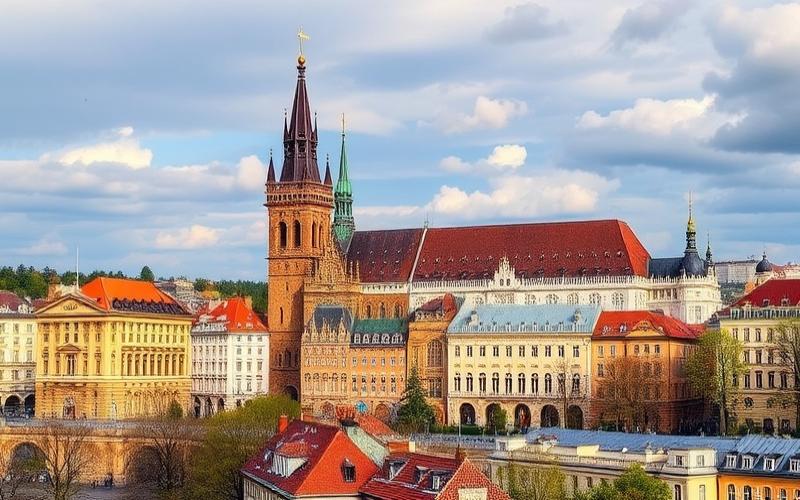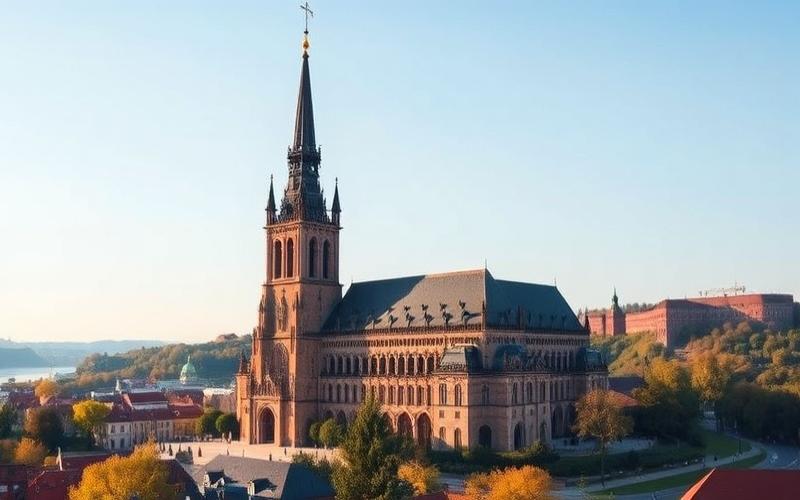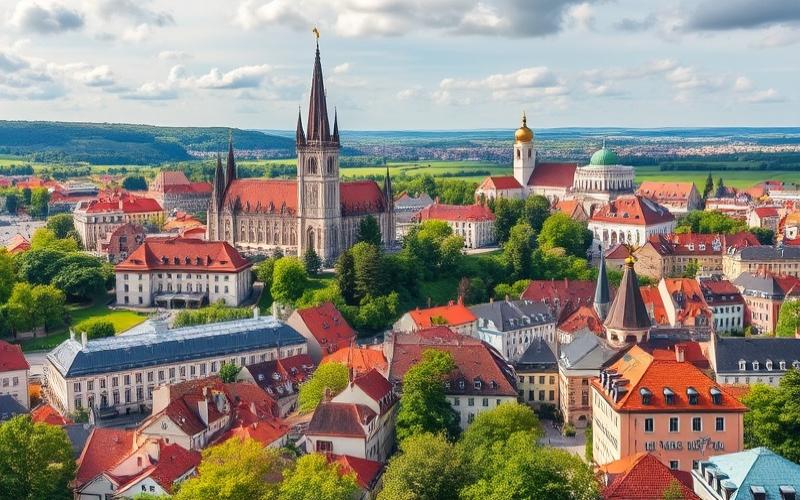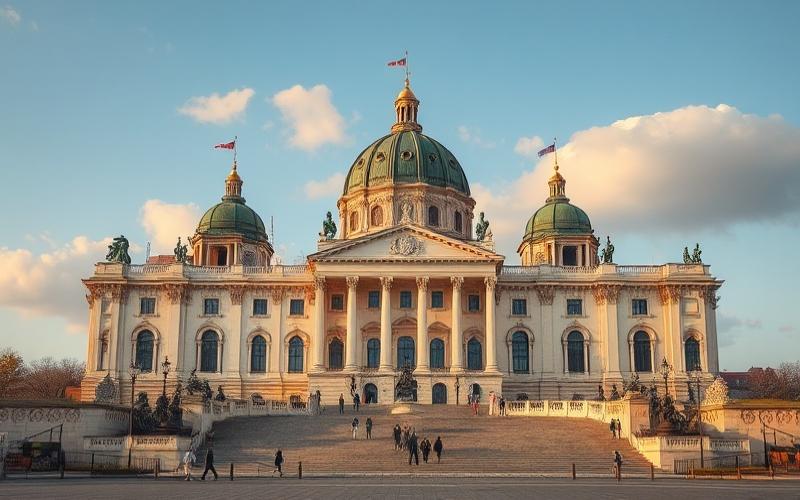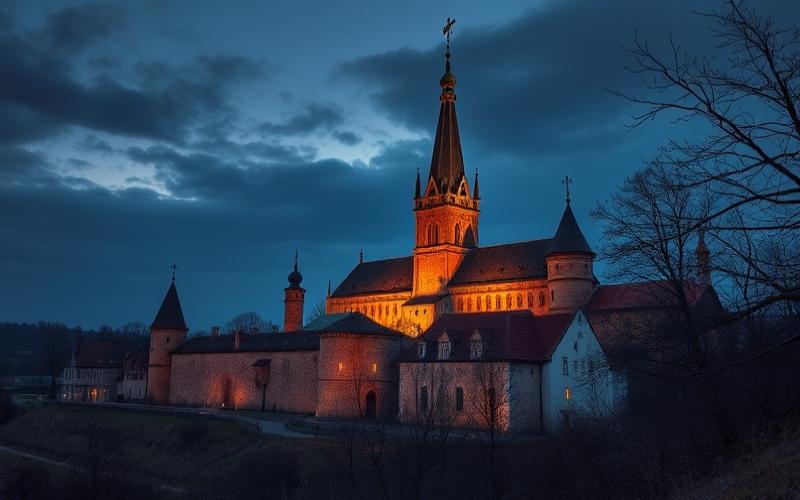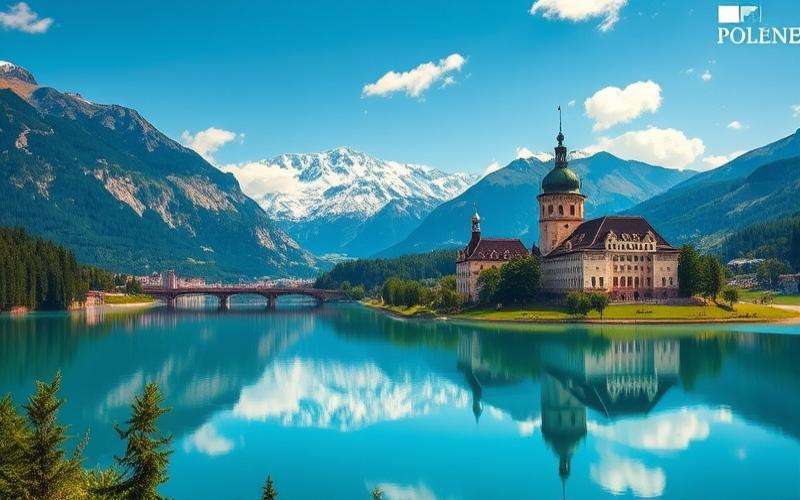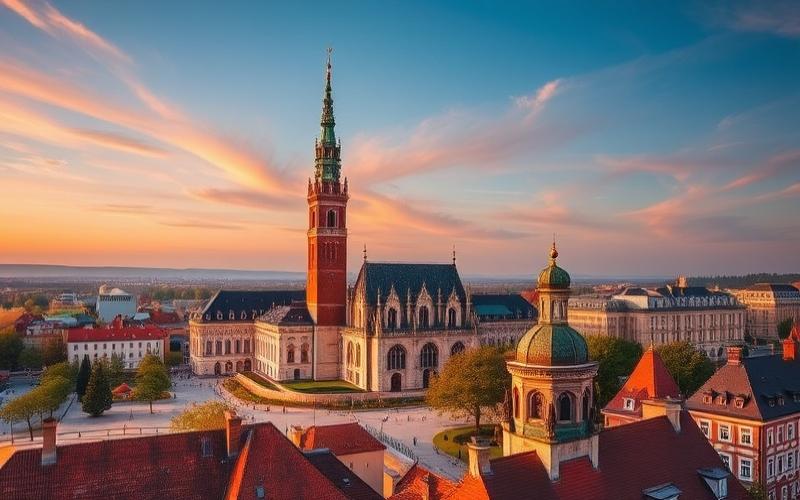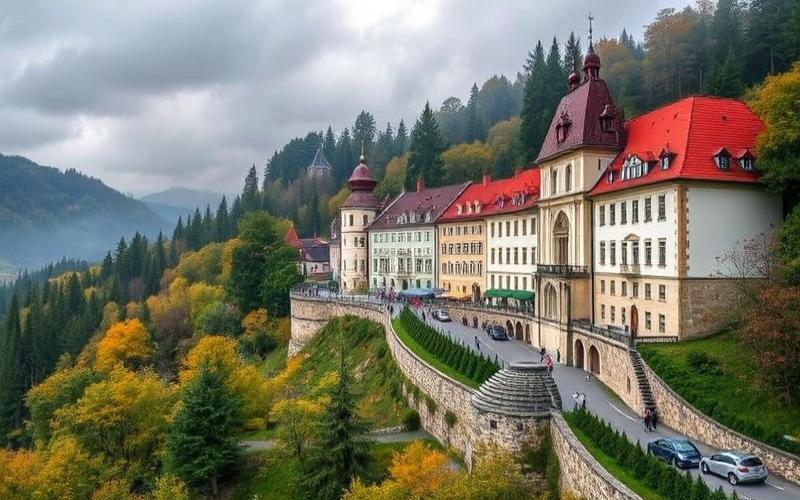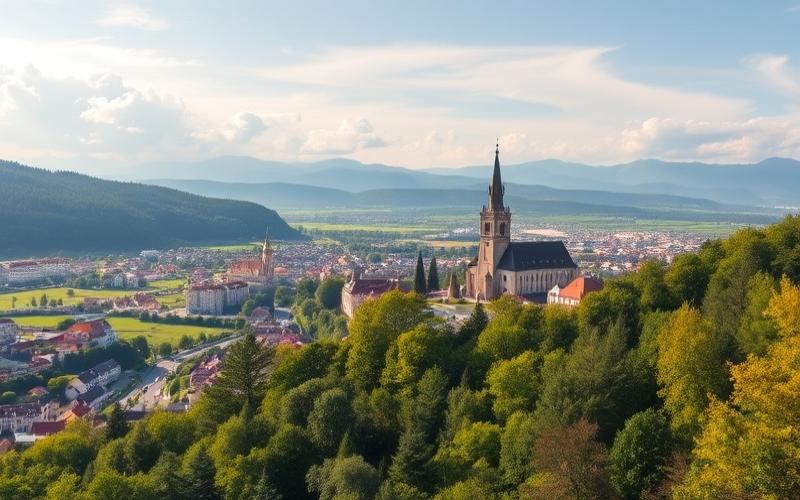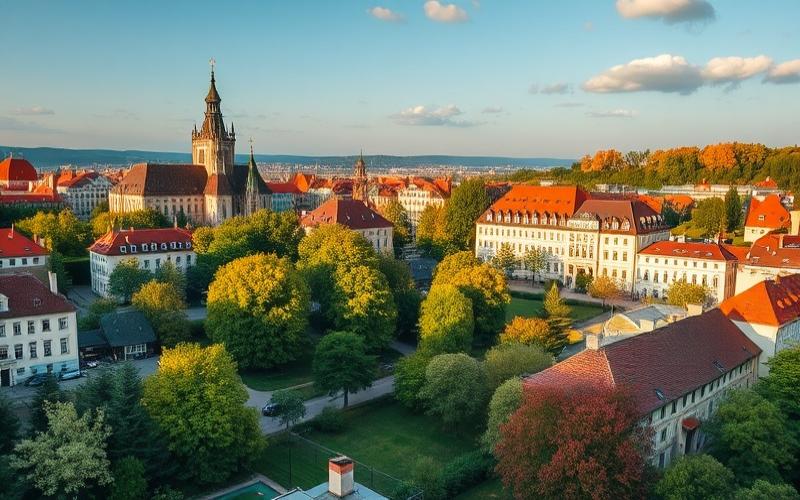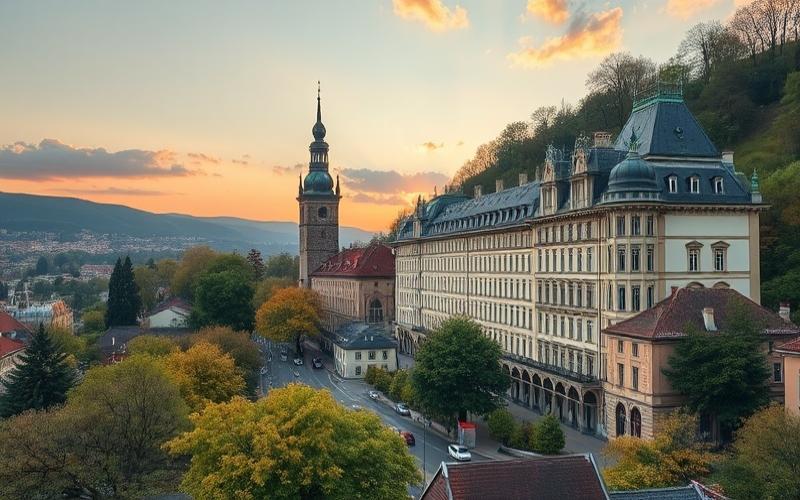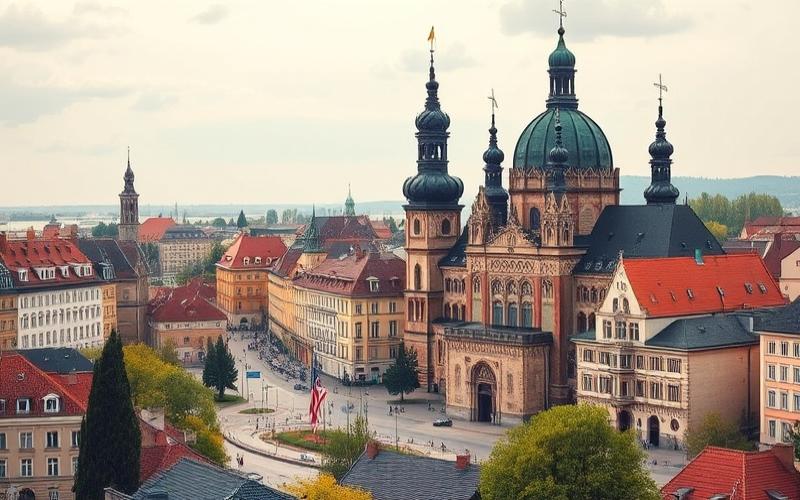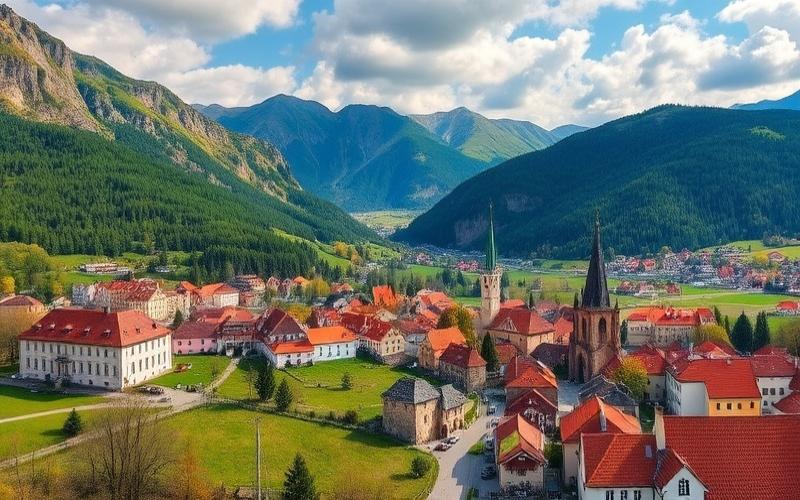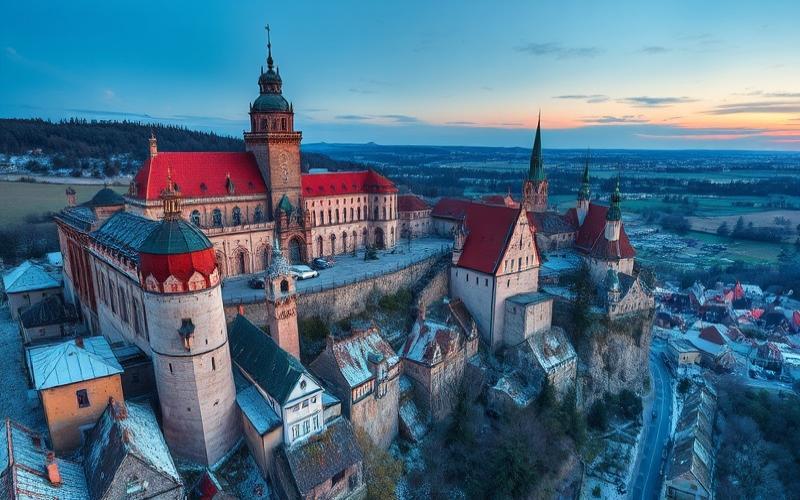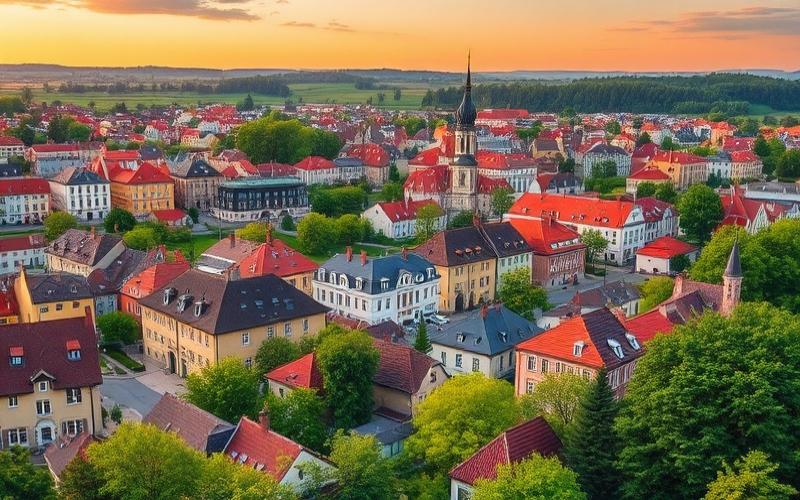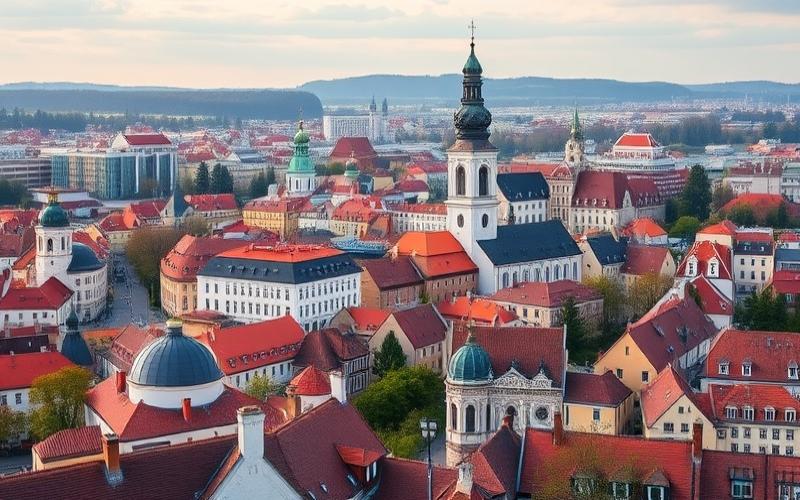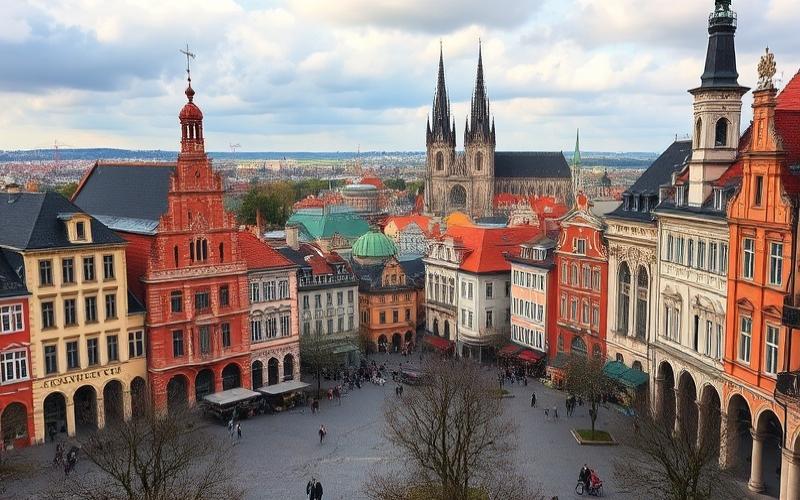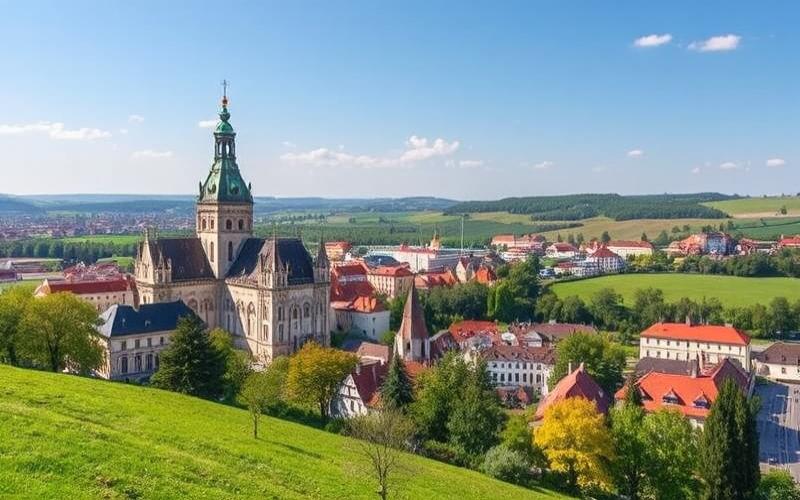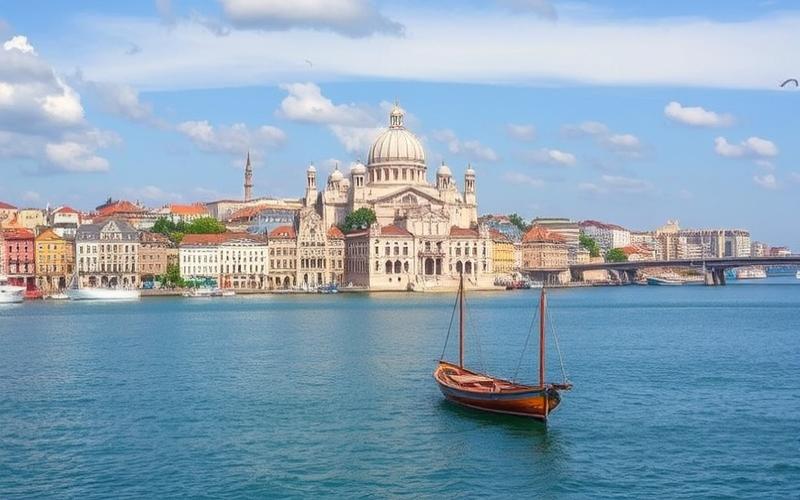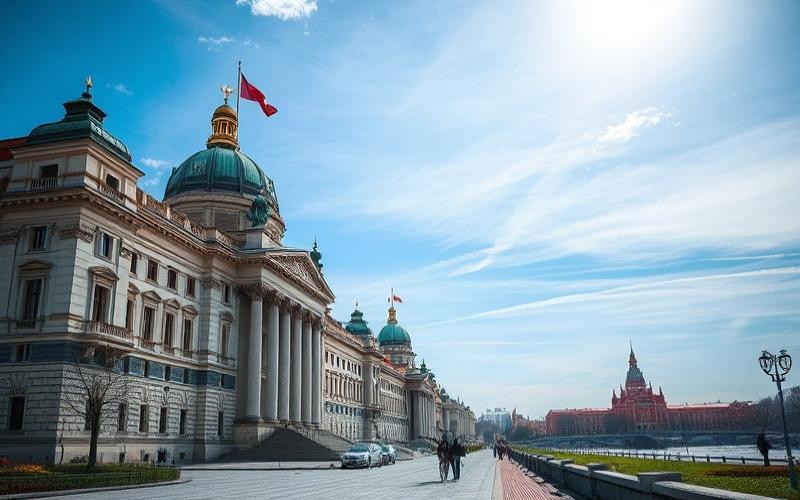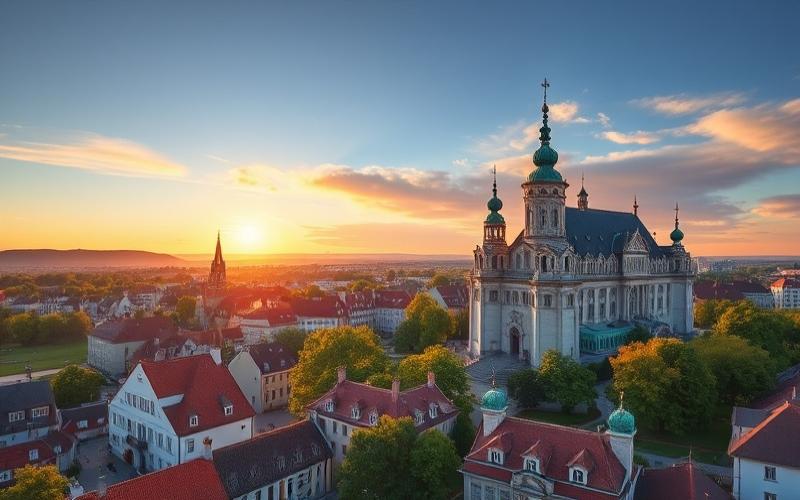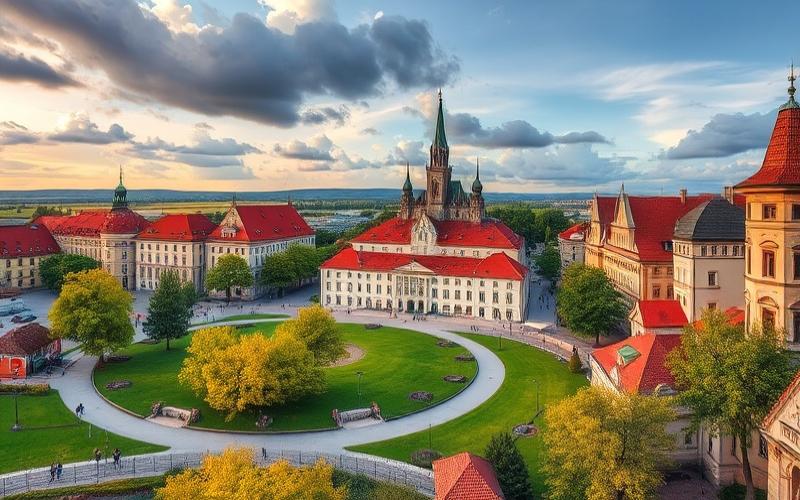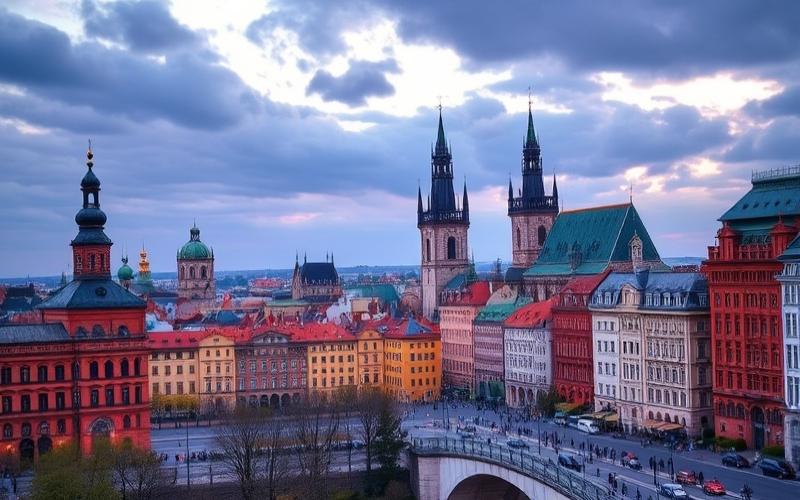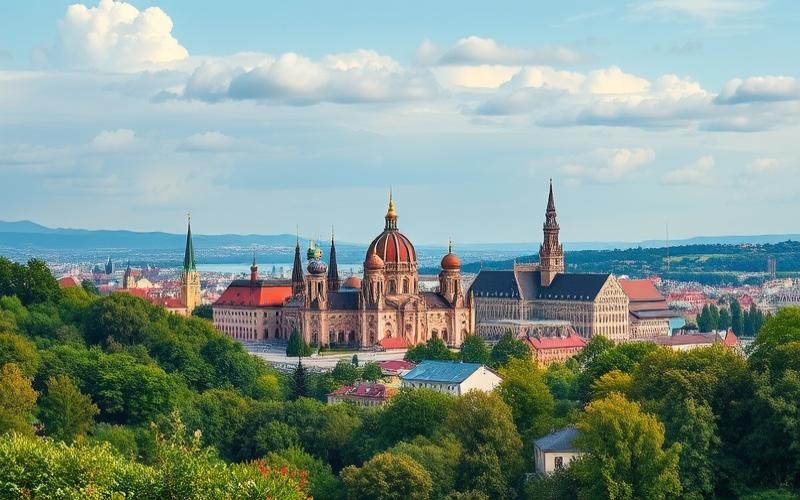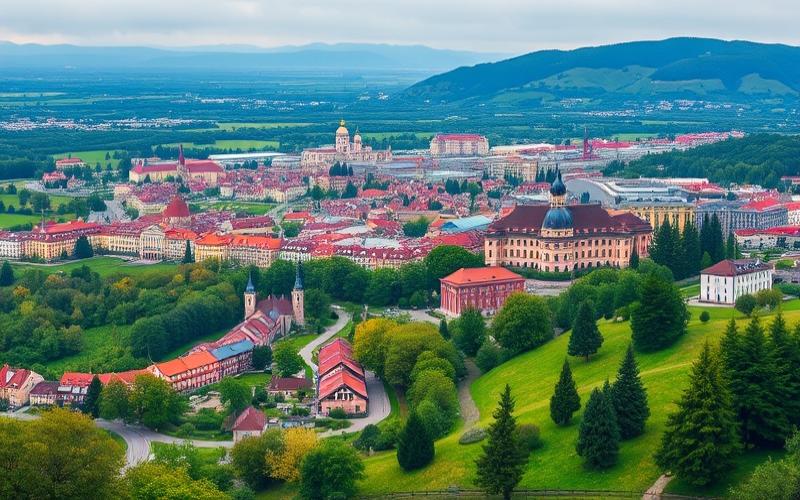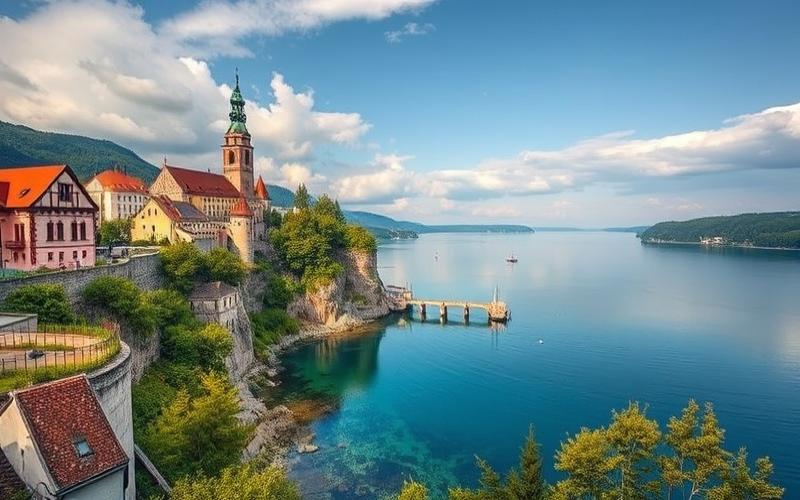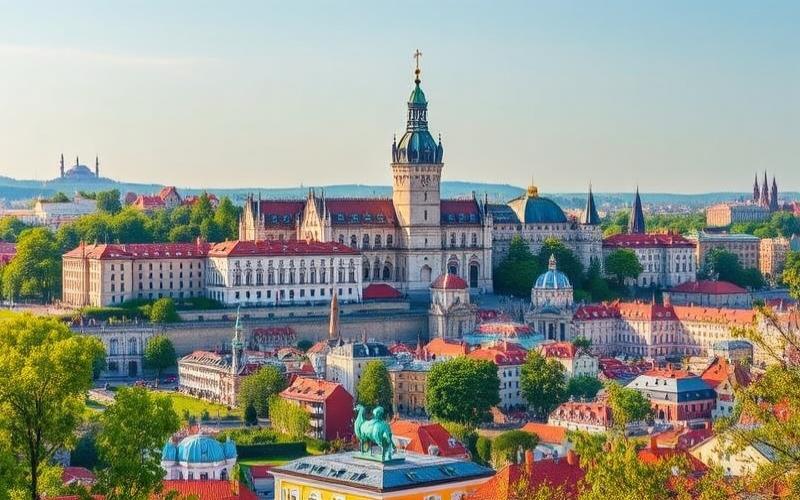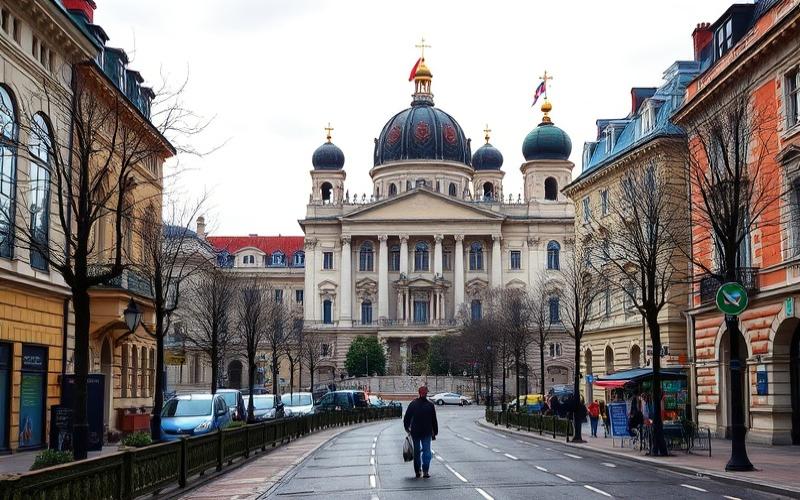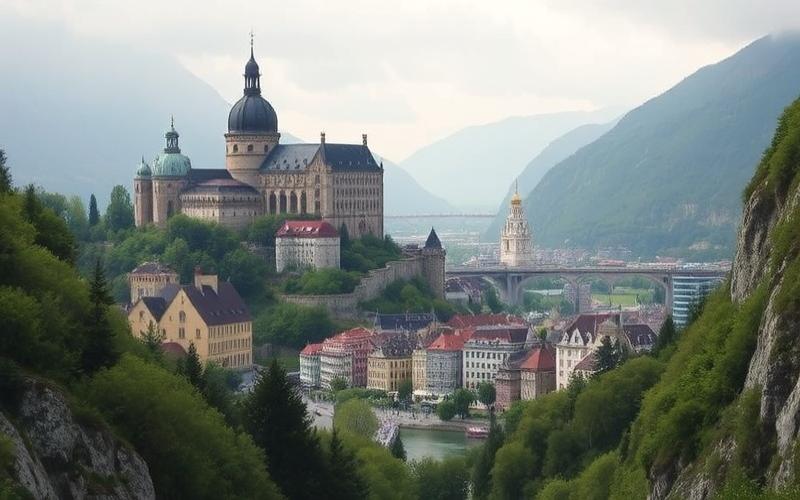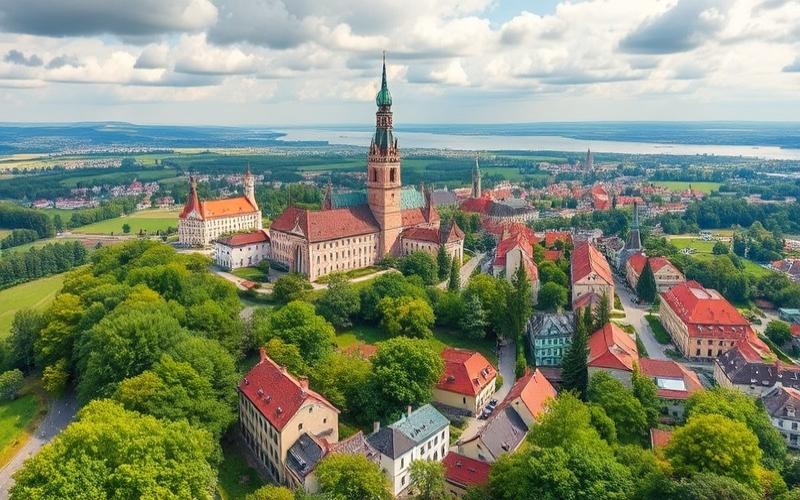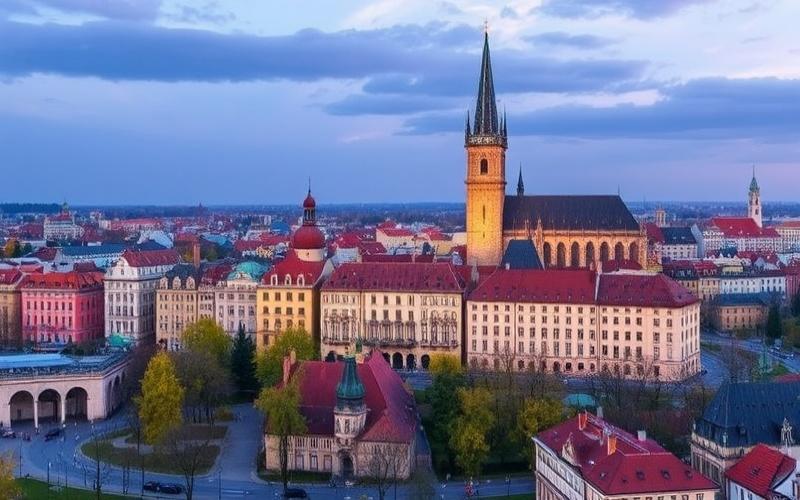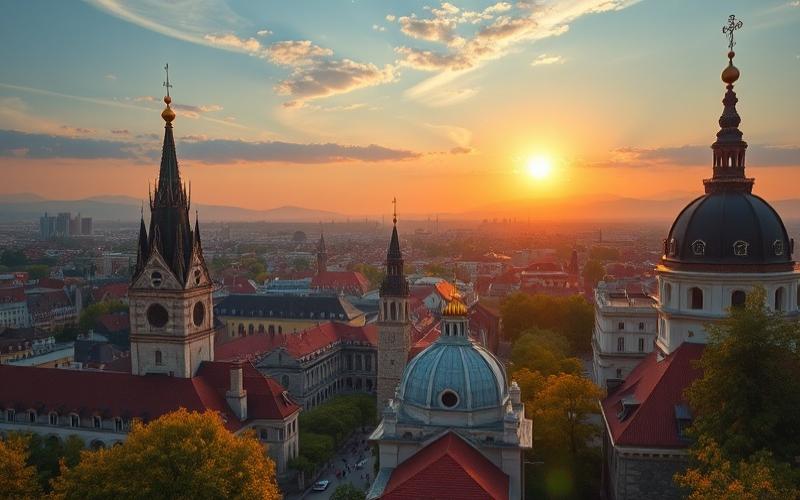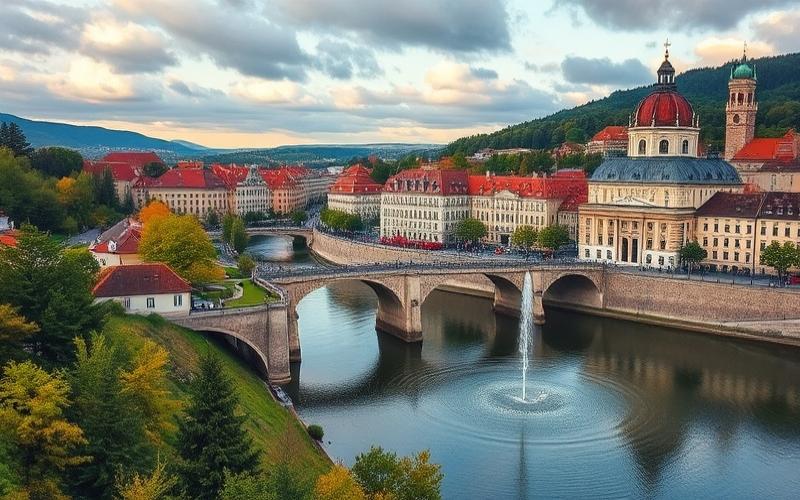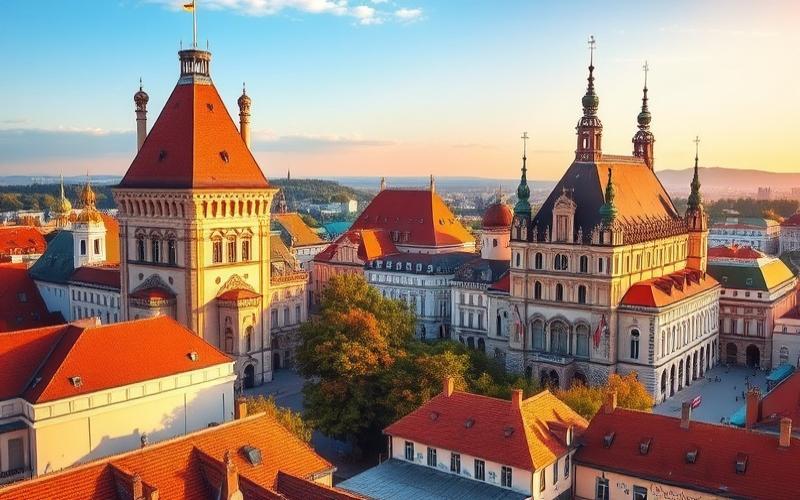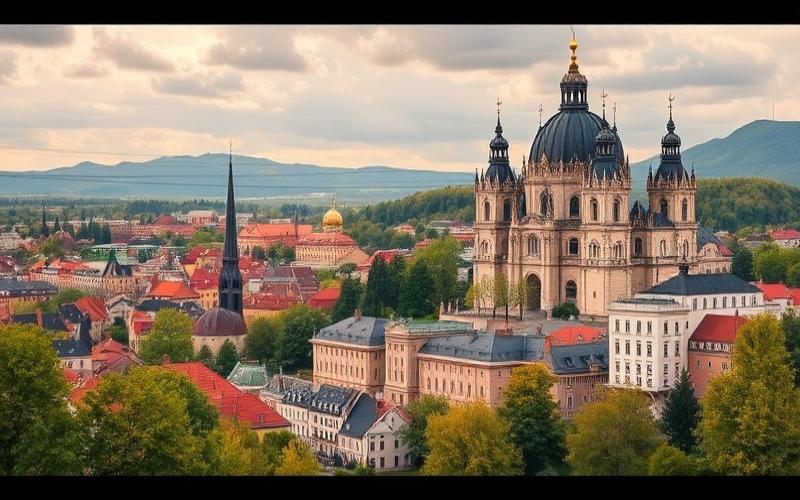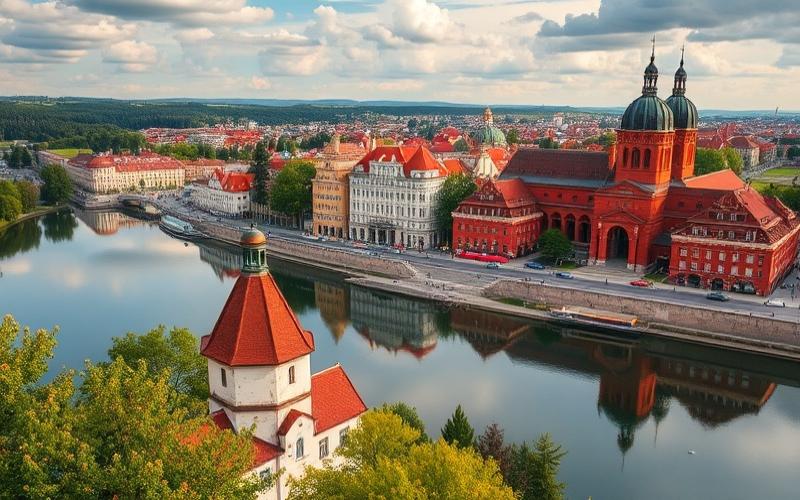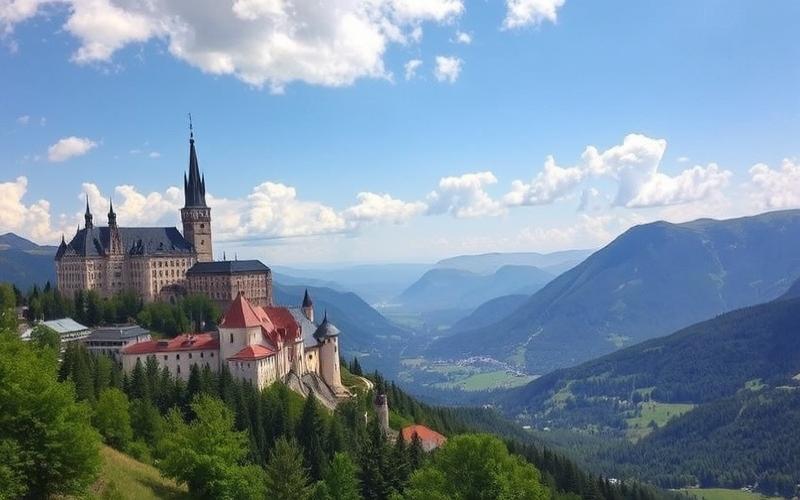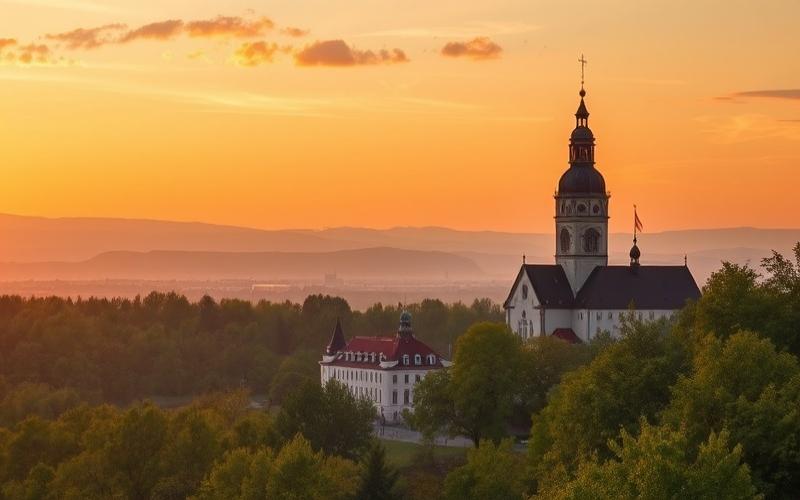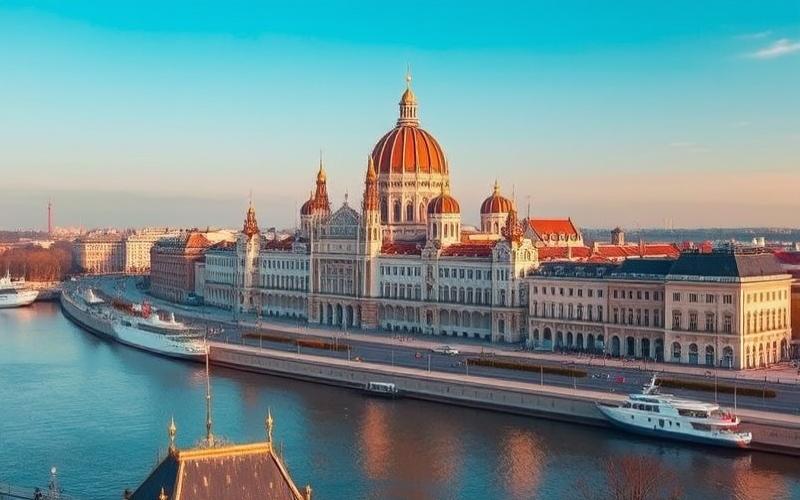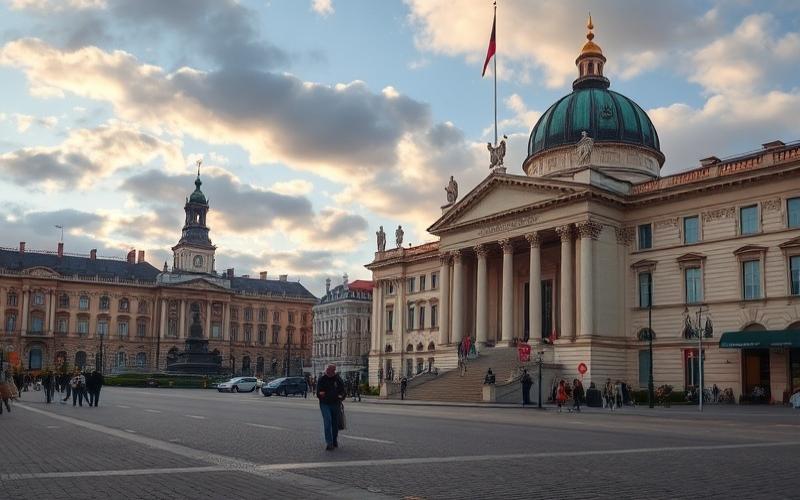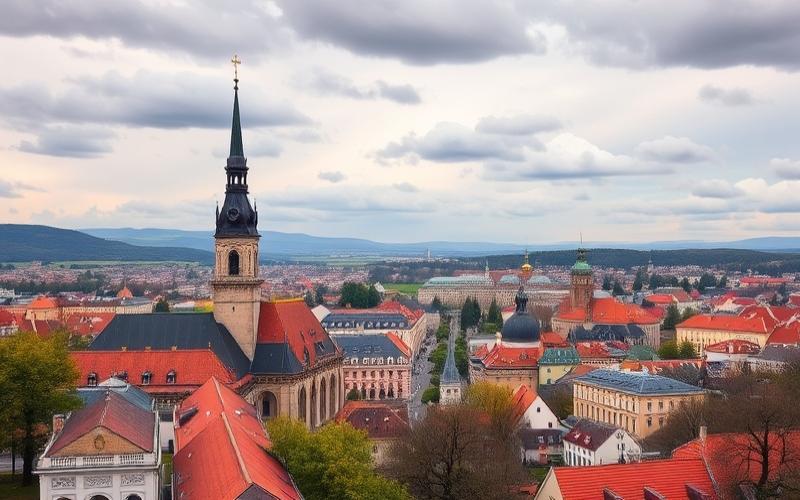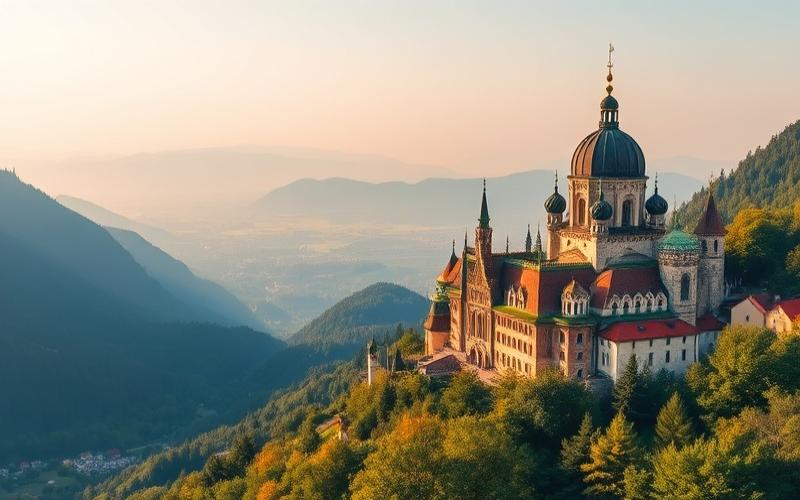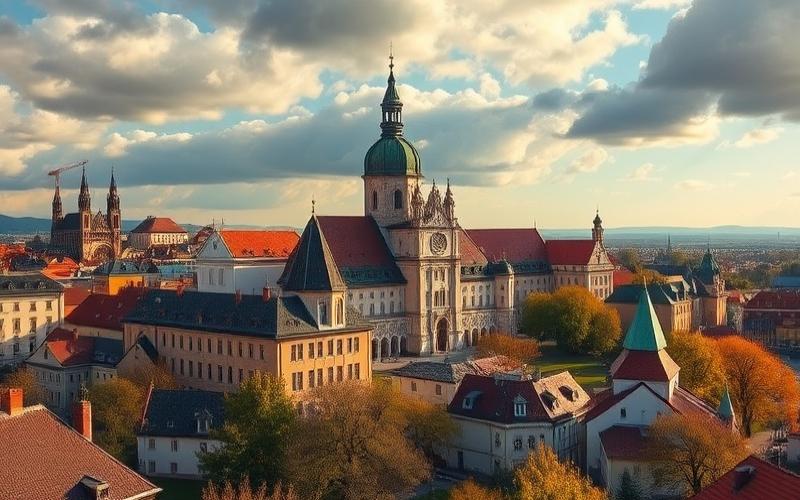
 Published on and written by Cyril Jarnias
Published on and written by Cyril Jarnias
Poland: A Booming Tourist Destination
Poland, recently recognized as a rapidly growing tourist destination, offers particularly attractive seasonal rental opportunities.
Diverse Attractions for Every Taste
Whether for history enthusiasts fascinated by Krakow and Warsaw or nature lovers drawn to the Tatra Mountains and the Masurian Lake District, the country boasts remarkable charm and diversity.
Good to Know:
Poland has experienced steady tourism growth over the past 5 years, with an average 7% annual increase in overnight stays.
A Dynamic Market for Investors
Investors and property owners are increasingly interested in this dynamic market, benefiting from growing demand driven by:
- Stable tourist flow
- Expanding local economy
With competitive operating costs and rapidly developing tourist infrastructure, entering Poland’s seasonal rental market could prove to be a wise and lucrative venture.
The Unexpected Benefits of Seasonal Rentals in Poland
Seasonal rentals in Poland offer numerous often-underestimated advantages for travelers, the local economy, and cultural heritage alike.
Economic Benefits and Support for Small Businesses
- Increased income for local property owners, who can rent their accommodations starting from €25 per night, with an average price of €150 per night for an apartment, and options suitable for all group sizes.
- Diversified lodging options (over 334,000 available properties), allowing tourists to choose between apartments, houses, family accommodations, or unique stays.
- Direct impact on the local economy: travelers renting from private owners spend more at neighborhood shops, restaurants, markets, and regional artisans.
- Opportunity for artisans and small producers to offer local experiences (workshops, handmade products, guided tours) to renters.
Development of Rural and Urban Tourism
- Contribution to rural tourism development through the promotion of traditional houses, countryside cottages, or accommodations in picturesque villages, encouraging exploration of less-known regions.
- Key role in revitalizing city centers, where seasonal rentals enable the renovation of historic buildings and maintain activity in heritage neighborhoods.
- Preservation of cultural and historical heritage through the restoration of old houses and promotion of authentic experiences for visitors.
Concrete Examples and Data
| Accommodation Type | Average Price Per Night | Guest Capacity | Location |
|---|---|---|---|
| Downtown Warsaw Apartment | €142 | 4 people | Urban |
| House with Sauna and Jacuzzi | €139 | 15 people | Rural, Lakeside |
| Seaside Apartment | €208 | 7 people | Baltic Coast |
- Over 155,000 rentals near water and 38,000 properties with swimming pools.
- Increased flexibility: bookings for short or long stays, free cancellation on many offers, accommodations suitable for families, groups, couples, or professionals.
Ecological Benefits and Sustainability
- Promotion of sustainable practices: many owners encourage waste sorting, energy conservation, and consumption of local products.
- Reduced carbon footprint compared to some hotels, particularly through kitchen-equipped accommodations that help limit food waste.
- Support for responsible tourism, especially in rural areas where natural resource management and environmental respect are priorities.
List of Often Overlooked Positive Impacts
- Promotes transmission of local know-how (craftsmanship, traditional cuisine, agriculture).
- Supports local employment (cleaning, maintenance, tour guides).
- Offers tourists authentic cultural immersion.
Seasonal rentals in Poland thus emerge as a lever for economic revitalization, heritage enhancement, and sustainable development, benefiting both residents and travelers.
Good to Know:
Seasonal rentals in Poland have a notable economic impact, supporting local small businesses and artisans, thereby strengthening the regional economy. They play a key role in tourism development, both in rural and urban areas, by preserving and enhancing the country’s cultural and historical heritage. In 2022, property owners’ income increased by 15%, thanks to diversified lodging options that attract a growing number of tourists. Furthermore, seasonal rentals encourage sustainable practices, prompting both renters and owners to adopt responsible ecological behaviors, such as waste reduction and use of local products. For example, some rentals offer welcome baskets composed of artisanal specialties, thereby promoting local and sustainable consumption.
Maximizing Your Earnings Through Effective Property Management
To maximize your earnings through effective property management in Poland, it’s essential to adopt a structured and professional approach covering tenant attraction, occupancy rate optimization, dynamic pricing, and the use of efficient digital tools.
Key Strategies for Attracting Tenants and Optimizing Occupancy Rates:
- Multiply distribution channels: posting listings on multiple platforms (Booking.com, Airbnb, Toploc) significantly increases visibility.
- Create a dedicated website with direct booking options to build recurring clientele.
- Craft polished listings with professional photos and detailed descriptions highlighting local advantages (tourist proximity or specific amenities).
- Tailor offerings to local expectations: for example, provide accommodations suitable for families or business travelers depending on the target region.
- Respond quickly to messages: proactive communication reassures potential customers.
Comparison Table — Examples of Attractive Features by Target Audience
| Target Audience | Sought-After Amenities/Services | Value-Added Tip |
|---|---|---|
| Families | Equipped kitchen, baby crib | Complimentary family package |
| Business Travelers | Fast WiFi, workspace | Express access/digital key |
| Leisure Tourists | Panoramic view, jacuzzi | Personalized guide |
Importance of Competitive Pricing Based on Local Seasonality:
Profitability heavily depends on regular price adjustments:
- Analyze high/low seasons related to local tourism (Polish religious holidays, school vacations).
- Offer promotional deals during seasonal lows to maintain good occupancy rates throughout the year.
Practical Example:
A property owner in Zakopane adjusts prices each season: +30% during Christmas/New Year due to high winter demand. They offer -15% off-season to attract long stays.
Digital Tools and Platforms Facilitating Management & Communication:
Non-exhaustive list:
- Channel Manager (e.g., Avantio) enabling automatic calendar synchronization across all platforms, preventing overbookings and losses.
- iCal tools to synchronize Airbnb/Booking/Toploc calendars.
- Partial or full automation of customer responses via integrated messaging systems.
Tips for Maintenance & Modernization to Increase Appeal:
- Perform regular minor repairs: fresh paint at least every two years; check plumbing/heating before each high season.
- Gradually update furniture & appliances; prioritize Scandinavian/light design currently popular in Poland.
- Occasionally hire a professional decorator who can adapt your property to local trends without excessive cost.
- Invest in some differentiating amenities: high-end coffee station or private sauna can justify higher rates.
Case Studies – Polish Property Owners Who Increased Their Income Using These Strategies:
Case #1: In Sopot, Anna entrusted her seasonal rental to a professional manager who completely revamped her listing with professional photos and trendy Scandinavian decor; result: +20% bookings in the first summer.
Case #2: In Zakopane, Marek has used a channel manager since 2023, eliminating double bookings + automatic customer review tracking; his annual occupancy rate quickly rose from 60% to over 80%.
Case #3: Katarzyna now adjusts her prices monthly according to the regional tourism calendar through active monitoring on Booking/Airbnb—she notes up to 35% price difference between low and high season, which she fully exploits via targeted promotions to loyal former tenants.
Maximizing your earnings therefore requires a comprehensive strategy combining smart digitalization,
flexible pricing adapted to the local market,
and continuous maintenance that enhances your property’s appeal to
all traveler profiles!
Good to Know:
To maximize your earnings in seasonal rentals in Poland, focus on optimizing occupancy rates through attractive strategies like offering discounts for extended stays and responding promptly to inquiries. Pricing should be dynamic, adjusting according to regional seasonality, with higher prices during peak demand periods, such as during Krakow’s cultural festivals or summer months at the Baltic Sea. Using management platforms like Airbnb or Booking.com helps centralize bookings and communications, making administration more efficient. To justify premium rates, invest in property maintenance and modernization by adding amenities such as high-speed WiFi or contemporary decor. Successful examples include property owners in Zakopane who doubled their income by implementing smart management and enhancing their offerings with renovations.
Navigating local regulations with peace of mind requires a clear understanding of Polish laws on seasonal rentals, staying updated on their regional variability, and maintaining rigorous organization to remain compliant while optimizing your business.
Overview of Main Current Laws and Regulations
- Mandatory central registration: Since July 2025, every property intended for short-term rental must be registered in the European Central Register with assignment of a unique identification number displayed in each listing.
- Specific permits: Some cities require a municipal or regional permit before any tourist rental operation.
- Applicable taxes:
- Tourist tax (varies by municipality)
- Income tax on rental activity revenue
- Social security contributions if the activity is professional
| Regulation Type | Detail |
|---|---|
| Property Registration | Mandatory identification number |
| Municipal Permits | Often required in major cities |
| Tourist Tax | Amount and conditions vary by location |
| Taxation | Declaration of rental income, possible VAT if threshold exceeded |
Regional Regulatory Variability
Rules differ significantly between Warsaw, Krakow, or Gdansk:
- Some cities impose maximum quotas for tourist accommodations per neighborhood.
- Maximum allowed rental durations may vary (example: limitation to a few weeks/months per year).
- Inspections are stricter in major tourist areas.
List of factors influencing opportunities:
- Limited number of licenses issued
- Temporary bans during local events
- Fluctuation in municipal tax amounts
Practical Tips for Staying Compliant
- Regularly check with municipal authorities for updated requirements.
- Clearly display the official European register number on all your listings.
- Keep all supporting documents (permits, tax payments) accessible and up-to-date.
- Consistently consult a local tax advisor before annual declaration.
Key Takeaway:
Stay proactive: verify every local regulatory change before any new listing or annual renewal of your offer!
Inspiring Examples of Successful Adaptation
- In Warsaw: A property owner was able to continue their business after quickly obtaining the new official number through digital assistance provided by the city hall and making their listings compliant by July 2025.
- In Krakow: A manager converted some apartments initially intended for seasonal rentals to a hybrid offer (medium-term rental/co-living), thus fully utilizing the annual allowed limit without tax or administrative penalties.
Useful Resources for Legal/Tax Assistance
Non-exhaustive list:
- Polish Tourism Organization — Rental Property Owner Advisory Service
- Polish National Real Estate Federation — “Short-Term Rentals” Section
- Specialized platforms like Airbnb Poland often provide documentation support adapted to local obligations
Recommended links:
- https://www.pot.gov.pl/
- https://www.pfrn.pl/
- Multilingual specialized legal services: https://bed-booking.com/fr/
Good to Know:
Navigating local regulations in Poland for seasonal rentals requires understanding the varied laws governing this sector. Indeed, it’s essential to obtain necessary rental permits and pay specific taxes that can fluctuate between cities or regions. For example, Warsaw and Krakow sometimes have stricter requirements than other locations like Gdańsk. To ensure compliance, it’s advisable to use legal or tax assistance services to effectively adapt to current regulations. Property owners in Wrocław have succeeded in thriving through careful and informed management of their rentals, successfully navigating local regulations. Useful resources including professional consultations are available to optimize these administrative processes and make the most of seasonal rental opportunities in Poland.
Disclaimer: The information provided on this website is for informational purposes only and does not constitute financial, legal, or professional advice. We encourage you to consult qualified experts before making any investment, real estate, or expatriation decisions. Although we strive to maintain up-to-date and accurate information, we do not guarantee the completeness, accuracy, or timeliness of the proposed content. As investment and expatriation involve risks, we disclaim any liability for potential losses or damages arising from the use of this site. Your use of this site confirms your acceptance of these terms and your understanding of the associated risks.

